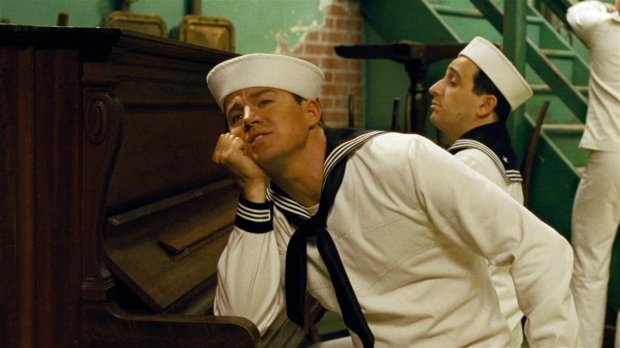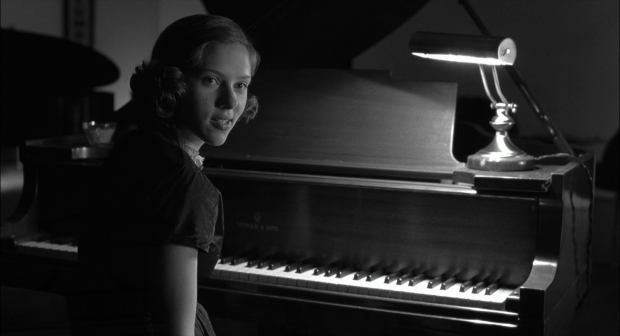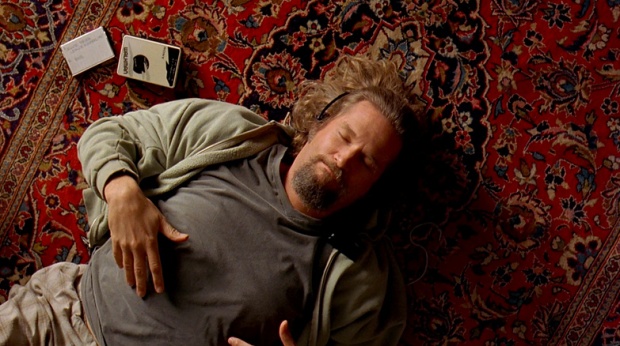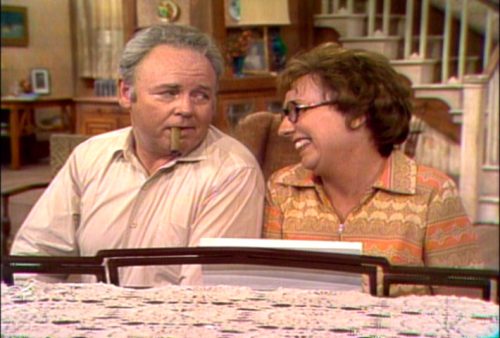The Music of the Coen Brothers – Part III
This is the third installment in a three-part series. Read part one and part two.
“You should change into a suit.”
Joel and Ethan Coen’s previous film won four of its eight Oscar nominations. They followed the most acclaimed – and bleakest – film of their career with a return to what they do better than anyone – a screwball black comedy based on an original story.
In fact, Burn After Reading (2008) was the first film based on an original story by Joel and Ethan Coen since 2001’s The Man Who Wasn’t There.
Part of Burn After Reading’s genius is in casting the A-list ensemble as total idiots. George Clooney, Frances McDormand, Brad Pitt, John Malkovich, Tilda Swinton and Richard Jenkins all excel as earnest people with small, insignificant lives.
The film is a playful homage to the genre of Cold War spy movies.
Civilians Brad Pitt and Frances McDormand accidently find a copy of what they believe to be top-secret information belonging to a high level CIA agent. In fact, their find is merely the inconsequential memoirs of a disgruntled analyst with a drinking problem and an abusive, philandering, wife.
The characters are all idiots, on an idiotic mission. But they believe they are in real danger, involved in high-level espionage. Continue reading →
The Music of the Coen Brothers – Part II
This is the second installment in a three-part series. Read part one here.
“The law? Law is a human institution.”
The Invocation of the Muse, swinging picks building into rhythm, human voices chanting in song – the sound of the men working on the chain gang. Black men in black and white stripes, washed out color film.
And so the Coen Brothers begin the new millennium with a retelling of Homer’s The Odyssey, set in Depression-era Mississippi – as a musical comedy.
Smooth talking Ulysses Everett McGill escapes from the chain gang (for practicing law without a license), shackled to two dimwitted fellow convicts. He is set on a journey home to see his estranged wife, Penny, and their daughters.
Along the way they encounter a blind prophet on the railroad, real-life delta bluesman Tommy Johnson (who, like his better-known namefellow Robert, allegedly sold his soul to the devil), Lotus-eaters in the form of a mass baptism in the river (the Coens continuously mash up Homer’s Greek traditions with the Christian themes of the film’s Southern setting) washerwomen Sirens, a Cyclops Bible salesman and the Ku Klux Klan (robed as white sheep) all while being pursued by the empty-eyed Poseidon devil, in the form of a relentless Sherriff in shades.
They even manage to record an unlikely hit record.
Like all the music in O Brother, Where Art Thou? (2000), “I Am A Man of Constant Sorrow” is a traditional folk song of the American South. The song dates back to the turn of the last century, but was popularized in the 1950s by the Stanley Brothers. In the early 1960s it became a folk staple. Bob Dylan included a version on his debut album.
Tip-Toe Thru the Tulips
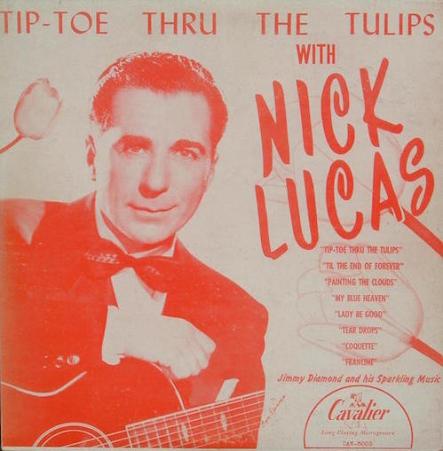 Spring is here. In fact, it’s almost gone. But the tulips remain in bloom.
Spring is here. In fact, it’s almost gone. But the tulips remain in bloom.
“Tip-Toe Thru the Tulips with Me” was not written as a comedy song necessarily, but it has been used for comedic effect through the decades. Al Dubin (“I Only Have Eyes For You,” “September in the Rain”) and Joe Burke (“Rambling Rose,” “Moon Over Miami”) composed “Tulips” for the 1929 musical comedy, Gold Diggers of Broadway, staring Nick Lucas, “The Crooning Troubadour.”
Gold Diggers of Broadway – only the third Warner Bros. release to be filmed in color – was a box office smash and made a star of Lucas, as well as the song. No complete print exists of the musical comedy, which synched polished, vivid Technicolor dance sequences with popular Jazz Age songs. Like the carefree era of the 1920s it captures, the film is lost forever. But “Tip-Toe Thru the Tulips” remains.
Lucas’ falsetto crooning, while charming and old-fashioned, was not intended as parody. The Italian-American singer (born Dominic Nicholas Anthony Lucanese) was a serious musician and an influential early jazz guitar player.
In 1930, the year after its first publication, “Tip-Toe Thru the Tulips” was featured in the cartoon short, Sinkin’ in the Bathtub, the first Warner Bros. Loony Tunes cartoon. The characters of Bosko and his sweetheart Honey have been criticized for employing black face humor as well as for being derivative of Mickey Mouse and Minnie Mouse. At the end of the cartoon Bosko utters for the first time the now immortal line, “That’s all folks.”
Since then, “Tulips” has been used for laughs in countless cartoons and film.
The song was sung in the bar of a ship in the 1945 film adaptation of Graham Green’s The Confidential Agent.
It appeared in another Looney Tunes short in 1961 – A Scent of the Matterhorn – featuring the not-so-veiled ethnically French skunk character Pepé Le Pew.
https://dailymotion.com/video/x2gg0y7
Beatle George sings a parody – “Tiptoe Thru the Meanies” – in the Yellow Submarine cartoon from 1968.
And, of course, “Tulips” is most famously remembered as performed by Tiny Tim, the falsetto-singing, ukulele strumming, frequent Carson guest and unlikely star of the late 1960s. There is an element of parody to Tiny Tim’s entire persona. Whether his rendition of “Tulips” is in earnest or is meant for a laugh remains unclear, although his admiration for old songs and singers, like Lucas, was certainly genuine. Tiny Tim died after performing “Tulips” on stage at a ukulele festival. He cut the song short before collapsing in his wife’s arms.
Tiny Tim requested that Nick Lucas sing his signature song on the Tonight Show for Tiny Tim’s televised wedding in 1969. 40 million viewers tuning in to Carson that night saw the original Crooning Troubadour effortlessly strumming his guitar, his voice a bit lower, performing a song many of them perhaps only knew from the eccentric groom’s odd homage.
At 70, Lucas was vibrant and charismatic. After transitioning from his first song, “Looking at the World Through Rose Colored Glasses,” into “Tulips,” he deadpanned: “What did you expect, Tiny Tim?”
“Tulips” comes from the “Moon and June” Tin Pan Alley school of simple, unserious fare. It is not a great song – at least not when compared with the many masterpieces of the Great American Songbook era in which it was written – Cole Porter’s “What is This Thing Called Love?,” The Gershwin brothers’ “I’ve Got a Crush On You” and “Embraceable You,” and Fats Waller’s “Ain’t Misbehavin’” were all written within a year of “Tulips.”
But it certainly has made its mark – “Tulips’” simple charm has permeated the culture, appearing as ironic or whimsical atmosphere from Harry Potter to the Walking Dead, from Insidious to the Facts of Life, and even as performed by animatronic animals at Chuck E Cheese.
It may not be Gershwin or Porter or Berlin, but in its lasting appeal, “Tip-Toe Thru the Tulips with Me” is a Great American Song.
Stringbean: Me and My Old Crow and a Letter from Home
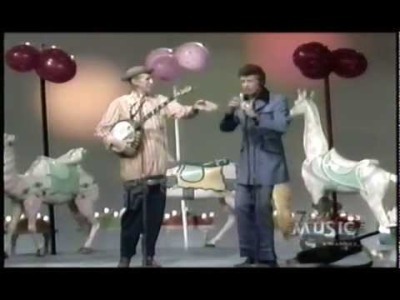 Last month, I wrote about David “Stringbean” Akeman’s life and murder. Here’s a clip of Stringbean in action picking a song and a doing one of his trademark “letter from home” bits with host Del Reeves, who seems to be feeling no pain. Stringbean and his wife were murdered a few years later when they ambushed burglars after playing the Grand Ole Opry.
Last month, I wrote about David “Stringbean” Akeman’s life and murder. Here’s a clip of Stringbean in action picking a song and a doing one of his trademark “letter from home” bits with host Del Reeves, who seems to be feeling no pain. Stringbean and his wife were murdered a few years later when they ambushed burglars after playing the Grand Ole Opry.
Scarecrow: The Music and Murder of Stringbean Akeman
Wake up, wake up little Betty
What makes you sleep so sound
When the highway robbers are a-comin’
They’ll tear your playhouse down
The little cabin in Ridgetop, Tennessee hadn’t held a soul in over twenty years. The crime scene chalk and blood were wiped away and the cabin shuttered for some time.
The man renting the place went to light a fire in the large fireplace. Small bits of paper escaped from its mouth, softly falling from the brick façade like volcanic ash in the still cabin air. It was money. Tens of thousands of dollars floating in worthless portions, gathered gently on the cabin floor.
Stringbean’s fortune.
How Sweet It Is
David “Stringbean” Akeman fashioned his first banjo from a shoebox and a piece of thread. He was born in 1916 in Annville, Kentucky. They were so poor his mother would give him rocks to throw at birds, and, if his arm was good, they’d have boiled fowl for supper. When he was 12, he traded two bantam chickens for his first real banjo.
He would make his name – and his fortune – playing novelty songs in the tradition of the banjo-playing comedians of the Grand Ole Opry.
But String could pick.
Well Trouble’s A Bubble: Dick Van Dyke at 90
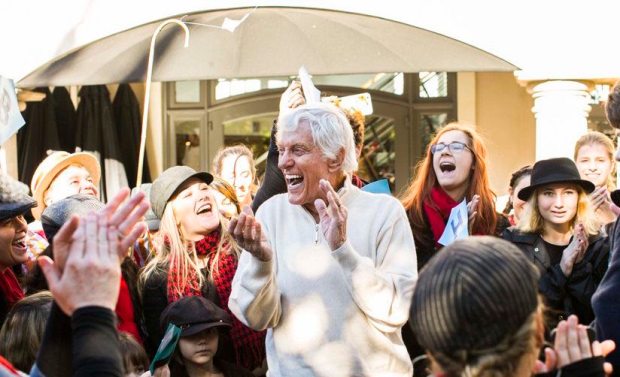
Photo by Nicola Buck
Dick Van Dyke celebrated his 90th birthday this past December 13, the way most nonagenarians do – by participating in a flash mob. Fitting for a man whose career is peppered with characters of youthful, childlike vision. In his impressive, 70-plus-year career he’s amassed five Emmys, a Tony and a Grammy.
Van Dyke got his start on radio and quickly moved to the stage. In 1959 he snagged the lead in Bye Bye Birdie, a role he reprised for the 1963 film. Other films followed including Chitty Chitty Bang Bang and Divorce American Style, but it was the 1964 Disney adaptation of Mary Poppins that gave birth to his most remembered film roll, as Bert the chimney sweep. Continue reading →
David Bowie – If it Itches, Play it
 David Bowie passed away Sunday, after an 18-month battle with cancer. This came as a shock to his fans throughout the world, unaware the icon was even ill.
David Bowie passed away Sunday, after an 18-month battle with cancer. This came as a shock to his fans throughout the world, unaware the icon was even ill.
Bowie released his final album, Blackstar, two days prior, on his 69th birthday. It is clear now the album was intended to be his swan song, a final statement in an unparalleled career. The fact he was able to conceal his terminal condition from the world in order to orchestrate such a graceful exit proves his consummate artistry and mastery of perception to the very, literal, end.
Blackstar is a deathbed testament along the lines of Johnny Cash’s “Hurt” or Freddie Mercury’s thinly veiled Innuendo. There is little humor on Blackstar, but David Bowie, who was never satisfied to stay in one artistic place for long, threaded his unique sense of humor throughout his wildly diverse work.
This humor was in full display one May morning in 1999 when he delivered the commencement speech to the graduating class at Berklee College of Music, having received an honorary doctorate from the institution (along with jazz master Wayne Shorter).
I was fortunate enough to be in the audience that spring day, and I shook Mr. Bowie’s hand as he handed me my diploma. “Congratulations, man,” he said to me, pulling me into his fierce grip with a solid, sincere stare, locking our eyes for a tangible moment. He wasn’t just going through the motions with limp disinterest – he forged an intense connection with each of the 580 music students he greeted that morning. His energy was electric.
His speech that day was insightful, incongruous, inspirational and, above all, funny. He talked of the myriad of influences that helped shape his artistry.
What if you combined Brecht-Weill musical drama with rhythm and blues? What happens if you transplant the French chanson with the Philly sound? Will Schoenberg lie comfortably with Little Richard?…And then I went on a crusade, I suppose, to change the kind of information that rock music contained. I adored Coltrane, Harry Parch, Eric Dolphy, Velvet Underground, John Cage, Sonny Stitt. Unfortunately, I also loved Anthony Newley, Florence Foster Jenkins, Johnnie Ray, Julie London, the legendary Stardust Cowboy, Edith Piaf and Shirley Bassey.
It made perfect sense to me.
This was followed by an anecdote about a dive club, Dame Shirley Bassey and a sink.
As a musician, he knew his imagination would have to transcend his own limitations. He fully confessed – standing in front of Wayne Shorter, no less – that he simply lacked the authenticity required to play the music he loved most: American jazz and rhythm & blues.
So he made his music into art.
I didn’t feel comfortable as a folk singer or an R&B singer or a balladeer. I was drawn more and more to the idea of manipulation of signs, rather than individual expression…It wasn’t so much about how I felt about things, but rather, how things around me felt. To put it simply, I had discovered the Englishman’s true place in rock and roll.
The rest of his speech that day was peppered with his enormous sense of humor: tips on venereal disease, inside music school jokes (“Rockers! Jazzers! Samplers!”), anecdotes involving Brian Eno, John Lennon and the aforementioned Shirley Bassey – and his even bigger generosity of spirit.
The world has lost a giant, and the stars look very different today indeed.
Music has given me over 40 years of extraordinary experiences. I can’t say that life’s pains or more tragic episodes have been diminished because of it. But it’s allowed me so many moments of companionship when I’ve been lonely and a sublime means of communication when I wanted to touch people. It’s been both my doorway of perception and the house that I live in.
I only hope that it embraces you with the same lusty life force that it graciously offered me. Thank you very much and remember, if it itches, play it.
A Bag of Jive
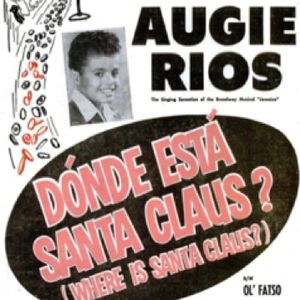 Humor and political correctness are antithetical.
Humor and political correctness are antithetical.
With the rise of the latter we risk losing the former. Many comedians no longer perform at college campuses because campuses in America have turned into humorless dens of fascism with “speech codes,” “safe spaces,” “trigger warnings” and “microaggressions” – anti-intellectual devices designed to suppress expression and thought.
In the words of the American poet Charles Bukowski, “beware those who are quick to censor, they are afraid of what they do not know.”
Racial humor has always been a touchstone of comedy, and if that ceases to be then the world will be less funny and diverse peoples will become more and more alienated from each other.
Countless comedians have based their entire oeuvre on their ethnicity, from Mel Brooks to Margaret Cho, Paul Rodriguez to Chris Rock. Comedians, like Don Rickles, who use crass racial humor in a positive light as a means to bring people together, are often misunderstood and shunned by the ignorant and the self-righteous.
This translates to music. Artists from Louis Jordan to Louis Prima created humorous songs by playing up ethnic idiosyncrasies and stereotypes.
So this holiday season, here are a few of my favorite racist, culturally appropriated Christmas songs.
Trigger Warning: some of these records may induce joy and cause one to laugh at oneself. In severe cases, they may allow an appreciation of others’ experiences and cause one to recognize elements of those experiences in their own.
“¿Dónde Está Santa Claus?” – Augie Rios
Augie Rios was a child theater actor born in New York City to Puerto Rican immigrants. In 1958, at the time of this record, he was appearing in Jamacia alongside Lena Horn, Ricardo Montalban and Ossie Davis. “¿Dónde Está Santa Claus?” is credited to Rod Parker, Al Greiner and Rios’ manager at the time, George Scheck. Considering the flip side, “Ol’ Fatso (I Don’t Care Who You Are Old Fatso, Get Those Reindeer Off My Roof),” this 45 should come with a double trigger warning. “¿Dónde Está Santa Claus?” remains a holiday staple in many Latino-American homes.
The Lost Art of the Sitcom Theme Song
In the old days of television, before on demand and remote controls, the theme song announced the next show. It was designed to catch or keep your attention. Between the birth of television and the end of the 20th Century, 42 television theme songs charted on the Billboard top 60, four of which made it to No. 1. In the 21st Century not one television theme song has hit the pop charts.
Reasons for this include changing public taste and the fragmentation of popular culture but also the simple fact that many modern shows have no theme, and most that do use a short instrumental motif in lieu of a full fledged song.
The 1950s
Like all television programming, the sitcom has its origins in radio shows that were adapted for the new medium. Two pioneering shows – The Honeymooners and I Love Lucy – set the template that would remain virtually intact for the rest of the millennium.
The Honeymooners theme keeps with the radio tradition of an orchestral bed beneath the announcer.
I Love Lucy was a pioneering show in many ways, including its theme song. The I Love Lucy theme, written by Eliot Daniel, is the first sitcom theme that works almost as a commercial jingle. It is an infectious, easily identifiable tune that serves to brand the show.
Interestingly, these two iconic 1950’s sitcoms featured childless couples living in apartments – one blue collar realism, the other showbiz glamour – in an era that would be defined by the quintessential suburban nuclear family: a large house with a yard and a dog, a father who works, a mother who keeps the home and the 2.5 kids who learn and grow from their problems each week: Leave it to Beaver, Father Knows Best, The Adventures of Ozzie and Harriet.
The 1960s
As the 50s morphed into the 60s, sitcoms began to focus on less traditional families, from the broken to the fantastic.
